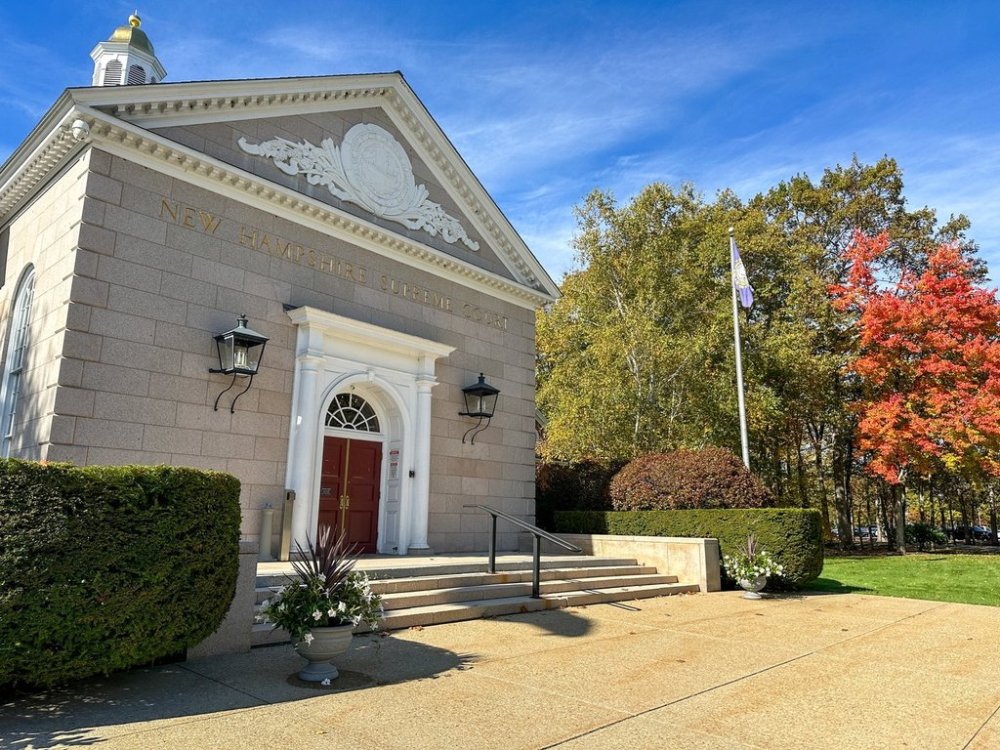New Hampshire court rules in clergy abuse case that 2020 law cannot be applied retroactively
Advertisement
Read this article for free:
or
Already have an account? Log in here »
To continue reading, please subscribe:
Monthly Digital Subscription
$1 per week for 24 weeks*
- Enjoy unlimited reading on winnipegfreepress.com
- Read the E-Edition, our digital replica newspaper
- Access News Break, our award-winning app
- Play interactive puzzles
*Billed as $4.00 plus GST every four weeks. After 24 weeks, price increases to the regular rate of $19.00 plus GST every four weeks. Offer available to new and qualified returning subscribers only. Cancel any time.
Monthly Digital Subscription
$4.75/week*
- Enjoy unlimited reading on winnipegfreepress.com
- Read the E-Edition, our digital replica newspaper
- Access News Break, our award-winning app
- Play interactive puzzles
*Billed as $19 plus GST every four weeks. Cancel any time.
To continue reading, please subscribe:
Add Free Press access to your Brandon Sun subscription for only an additional
$1 for the first 4 weeks*
*Your next subscription payment will increase by $1.00 and you will be charged $16.99 plus GST for four weeks. After four weeks, your payment will increase to $23.99 plus GST every four weeks.
Read unlimited articles for free today:
or
Already have an account? Log in here »
CONCORD, N.H. (AP) — New Hampshire’s 2020 law abolishing deadlines for lawsuits alleging sexual assault cannot be applied retroactively, the state Supreme Court ruled Wednesday.
The ruling came in the case of Randy Ball, who sued the Roman Catholic Bishop of Manchester in 2023 alleging he was raped by a priest at a summer camp in the 1970s. Under the law at the time of the alleged assaults, Ball had only until he turned 20 in 1986 to sue, but he argued his lawsuit was permissible under a 2020 amendment that removed the statute of limitations.
The amendment itself did not specify whether it could be applied retroactively, but the court ruled that doing so would violate the state Constitution, which gives private parties a vested right to a statute of limitations defense.

In upholding the dismissal of Ball’s lawsuit, justices said they were “acutely aware that victims of child sex abuse are some of the most vulnerable victims who deserve all the protections and remedies available in our judicial system,” but emphasized their role was to interpret the Constitution.
Ball’s attorneys did not respond to a request for comment Wednesday. In court documents, they said it was understandable that it took him decades to come forward about the alleged abuse in which a now-deceased priest told him rape was “the product of God’s love and all part of His plan.” They also said the court should weigh the diocese’s vested right to the statute of limitations defense against Ball’s right to seek recourse for the harm he suffered.
“It is one thing in a debt collection case to claim a right based on the passage of time to keep one’s books in order,” they wrote. “It is another thing altogether to claim freedom from accountability for one’s part on the rape of a child because enough time has passed to make one believe they have escaped liability for the same.”
In a statement provided by its attorneys, the Diocese of Manchester said defending such lawsuits can be difficult, if not impossible, because witnesses and evidence may no longer be available. “In this case, the report was made 50 years later, and the accused priest died in 2002,” the diocese said, adding that protecting the safety of children is among its highest priorities.
In 2002, the state agreed after a lengthy investigation not to prosecute the diocese as an institution or any individuals for their past handling of sexual abuse allegations involving clergy. In return, the diocese agreed to enact strict new child protection policies, admit its actions had harmed children and open itself up to a series of audits.
“For more than 20 years, the Diocese has worked with victims and survivors of abuse to listen to their experiences and respond as each person may need, including pastoral care, counseling support, and financial assistance,” the diocese said.
It’s unclear how many potential lawsuits would be affected by the ruling. Dioceses elsewhere have filed for bankruptcy due to the costs associated with lawsuits and settlements stemming from clergy abuse scandals. In January, the Maine Supreme Judicial Court sided with the Roman Catholic Diocese of Portland, which challenged a 2021 law that retroactively removed the statute of limitations for civil claims about child sexual abuse.
The Free Press acknowledges the financial support it receives from members of the city’s faith community, which makes our coverage of religion possible.


